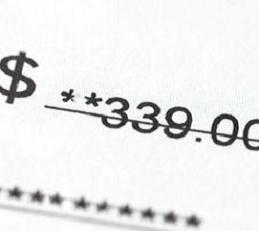Dear sirs ending letter
When do you sign a letter Yours Sincerely? This salutation should be used for communication regarding specific projects, specific concerns, or employment. I am writing to apply for…” End : “I look forward to hearing from you.
A letter to someone you know well may close with the more informal Best wishes. Note that the Americans tend to close even formal letters with Yours truly or Truly yours, which is unusual in the UK in commercial correspondence.
When you’re ending your letter , be sure to choose a letter closing that is appropriate to the topic of your letter and to your personal situation and relationship with the person to whom you are writing. In any other correspondence, regardless of media, there are no rules: do what you think is appropriate. I was alwas taught that when writing a letter starting dear sir, you end it yours faithfully. Dear Sir used to be the standard. I have been doing this for more years than I care to remember.
However, one of the solicitors that I work for would like her letters, where they are dear sirs , to be signed off yours faithfully, but also with her name, position and contact details at the bottom of the letter ! Sirs” is the plural form of “sir”.
Hope this helps you. Dear Esther, or Dear Mr Jackson, In American usage, only a personal letter takes a comma here, while a business letter takes a colon: Dear Esther, but Dear Mr. When writing to a colleague if hello or hi is too informal, most people would switch to first names and put Dear Fre or simply Fre.
Signing off to a person not work relate but not a frien Kind regards or just Regards would be fine. It’s your last chance to make a good first impression on your reader. Choose the wrong closing, and you might damage the goodwill you have built up in the rest of your communication.
For example, if you were addressing Marty Smith, then you would put your salutation as Mr. Furthermore, this greeting has more scope to offend as some people prefer not to be addressed by gendered pronouns. In conclusion, there are still some scenarios where it is appropriate to use ‘To Whom It May Concern’. Dear’ sounds too formal in some cases, while ‘Hi’ seems too chummy in others.
Thank you for your enquiry about …” Dear Madam. This is because you don’t know if you’re writing to a man or a woman. Freshfields’ joint managing partner Chris Pugh said: “It’s a relatively. Formal letter is ended with Sincerely, Sincerely yours, Best regards, Regards.
Write the summary of the main points describing your request or necessary actions.
How to End a Letter ? Beginnings and endings of letters vary according to whom you are sending the letter. Yours truly, – this can be used when you’re writing to someone you know slightly. This is more common in America.
I’m enclosing my CV for your attention…” If you know for sure that the person is a woman (but you don’t know her name) you can write “Dear Madam”. Avoid these other mistakes. Yours sincerely, – this is used when you’ve addressed a named individual in your letter.
Don’t write “Dear Mrs” on it own without any name afterwards. Remember: after titles like Mr, Mrs or Ms, we need a surname. One of Britain’s most prestigious law firms has banned the use of “Dear sirs” from all of its legal documents and communications, apparently the first of the “magic circle” of top City legal.

Comments
Post a Comment